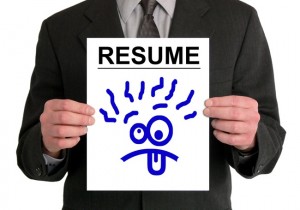#BestJobSearchTips : Collection of Favorite Job Search Tips From 2022, that Will Help you in 2023. MUst REad!
With 2022 winding down, a lot of us are thinking about our goals for the new year. But if those goals include landing a new job, you might have a lot of work to do. From polishing your résumé and writing cover letters to interview prep and company research, looking for a new job is basically another job in itself.
“Before accepting a job, there is usually a time to negotiate salary, and this is a good opportunity to negotiate your job title as well. The same goes for any promotion. Pick a job title that has the highest earning potential.”
To help you get started, we’ve rounded up the best job searching tips of 2022 from the always-helpful r/LifeProTips subreddit. Here are the tips people loved in 2022 to help you start your 2023 job search right:
1. “When applying for a job, keep in mind that you are being interviewed long before your interview begins.”
“When communicating back and forth for a potential job, any and all correspondence that you have with the person hiring is being taken into consideration.”
I am currently hiring for a Front Desk position that would require the future employee to interact with customers (both in-person and via email) and be professional and timely at all times. I have been emailing with a number of applicants to organize interviews, and I am blown away by the number of people who have not been professional throughout the process. I have already written off the applicants who have been short and unprofessional in their emails, shown up late for their interview, or been poor communicators throughout the process.
Extra Pro Tip: Research the company you are applying for! My first interview question is ‘What do you know about our company and what made you want to apply for this job?’ And more often than not, applicants have responded with, ‘I don’t know anything about your company.’ Any and all information they would need is on our website under the ‘About Us’ section, and would show me that they have the forethought to prepare ahead of time!”
You might find social media accounts and can see how they present themselves and if you will get along with them. Maybe you find out that you share hobbies, maybe they share extremist political content. You will know more after Googling, which might help your decision if you want to work with them.”
“They likely did the same to you, might as well look them up too.
Because a job interview isn’t just them interviewing you, you are interviewing them (more so when you are competitive for your field/industry). Realizing this helped my mindset in interviews. I don’t need to be nervous. I need to show them what I can offer to the job and decide if I want to work in the work environment they are offering.”
Like this Article? Share It! You now can easily enjoy/follow/share Today our Award-Winning Articles/Blogs with Now Over 2.5 Million Growing Participates Worldwide in our various Social Media formats below:
LinkedIn: https://www.linkedin.com/in/chris-g-laughter-b46389198/
Twitter: Follow us @ firstsunllc
Best Daily Choice: Follow the Best of FSC Career Articles/Blogs @
https://twitter.com/search?q=bestoffscblog&src=typeahead_click
Question: Want the ‘the best/current articles/blogs on the web’ on Job Search, Resume, Advancing/Changing your Career, or simply Managing People?
Answer: Simply go to our FSC Career Blog below & Type(#Jobsearch, #Resume, or #Networking) in Blog Search: https://www.firstsun.com/fsc-career-blog/
What Skill Sets Do You have to be ‘Sharpened’ ?
Did you know? First Sun Consulting, Llc (FSC) is celebrating over 30 years in the delivery of corporate & individual outplacement services & programs to over 1200 of our corporate clients in the U.S., Canada, the UK, & Mexico!
We here at FSC want to thank each of our corporate partners for the opportunity in serving & moving each of their transitioning employee(s) rapidly toward employment!
Article continued …
2. “Use AI to generate cover letters to save time applying to different jobs.”
“Recently my wife has been applying for jobs on the market. She’s tired of writing cover letters for different companies, so I helped her generate them using AI instead. ChatGPT blew up recently and everyone’s been using it.
Put things that contain the company information and your background like ‘A cover letter for applying to an accounting company as a bachelor of finance,’ the more specific the better.”
“I just tested this, and I’ll be damned if it didn’t work. It didn’t seem perfect. There were lots of things that could be improved, but you go from authoring to proofreading and editing instead, and that’s a big benefit.”
“I’ve made this mistake before. My current boss sent me a LinkedIn message and it was pretty awkward.”
4. “When filling out a job application that requires you to answer long questions online, write them out in a Word document first.”
“I learned this lesson many years ago, applying to a job with long essay questions, and of course the application glitched and didn’t save. My spouse just learned this lesson last night, and I feel horrible for forgetting to tell him my painful experience, so here we are.
Therefore, whenever you are filling out long answer questions online, write them out in Word (or whatever you use), or at the very very least, copy and paste your answers into Word. Trust me! Plus that way you can save them should you need those brilliant answers in the future.
And don’t trust that ‘save application’ button. Don’t click it until you’ve copied and pasted your answers somewhere else first. Websites time out and don’t tell you sometimes.”
5. “If you barely don’t meet the job requirements, apply anyway. You may be able to land the interview and progress from there. Let them decide if you’re good enough, don’t do their job for them.”
6. “If you can, don’t apply for a job that is complaining about ‘severe employee shortages’ or the like. There’s a reason they can’t retain employees, and you don’t want to have to find out what that reason is.”
“One of the questions I always ask in an interview is, ‘What is the average tenure of the team I’ll be working with?’ Some are quite caught off guard by the question, and I’ve even seen the life drain out of some of them when they realize exactly what it is that I’m asking. It’s a perfectly legitimate question and can give you a mountain of information from the actual tenure, which is nice to know, to how they answer (or dance around) the question.”
7. “When job searching on LinkedIn, filter for ‘in my network,’ then reach out and ask your connection for a referral.”
“I know many of us are unwilling to give up remote work, and many companies are forcing people back. That puts a lot of us in the job market. There are over 550,000 remote jobs on LinkedIn right now. LinkedIn is really great for job searches because it’s shows you your connections at a given company. You can even filter for ‘in my network’ to see companies you know people at. Reach out to those people and ask for a referral. A referral can be the difference between getting an interview or not.”
8. “If you are looking for a new job and reading reviews of a company always look at the date reviews are posted. If all the five-star reviews are posted on the same day, avoid it.”
“My current employer took their rating from 1.7 on Indeed to 4.6 in three weeks by incentivizing reviews.”
9. “If your home doesn’t have a space suitable for having a virtual interview, check with your public library to see if they have a meeting room you can use.”
10. “Copy/paste all job descriptions you’re interested in into a notes app, with the job title, company name, and how you applied.”
“Job applications don’t last forever on the respective sites/boards. Job titles can easily blur; you do not want to think you’re interviewing for Software Analyst I and it’s really Systems Analyst I at a completely different company.
Jot down the info in the title so you can easily keep up with what you’re doing AND be able to mentally compare the job description to what the recruiter entails it to be. If you’re good at multi-tasking without looking distracted, you could even have it (or a brief description) pulled up on your device/monitor while looking into the camera, verbally checking off the items during the discussions.”
11. “If you are in the process of applying for a job, please make sure you have set up the voicemail on your cell phone.”
12. “It’s better to negotiate a good starting salary rather than relying on raises to hit your target.”
“If you accepted a low-ball starting salary, it’s unlikely that you can rely on a raise to get you to where you want to be.
It’s best to negotiate a starting salary to start off where you want to be. Remember, once an offer has been made, the ball is in your court and you have negotiating power.”
13. “Keep a CV or master résumé for when you are applying for jobs. You can make custom résumés quickly by pulling necessary info out while also keeping all of your résumé information in one place.”+
“By making a master document, you have everything you have ever done already formatted and summarized in a résumé format such that you can copy and paste from it to generate custom résumés for each application.
Likewise, you have all of your information in one place so you don’t have to look across multiple versions of your old résumés to remember what you have done.”
“As soon as you start a new job, add its job description to your ‘master résumé’, even as just a place-holder that you’ll edit later. In six months or a year, come back to it and update that portion based on what you’ve learned.”
14. “When submitting a résumé online, make sure you use a filename with your first and last name.”
“Oftentimes people don’t realize the filename you use to submit your résumé is seen by the recruiter. If you name it something like ‘new revision for accounting firms,’ they will see this. What’s more, if they are downloading them they have to go out and rename the files, which takes time. Best approach is to just name your PDF with your first and last name.”
15. “Keep a running list of career accomplishments and things you’re proud of.”
16. “If you have a job interview coming up, practice describing your job to someone who isn’t familiar with your industry. Include descriptions of what you do and what tools you use.”
“This can be especially good so that you can practice keeping a straight face if the question sounds silly. Remember the first person you meet in a job interview may be HR and may not know anything about the details of the actual job you are being hired for.”
17. “When you have an interview at a company, Google the people you have the interview with.”
You might find social media accounts and can see how they present themselves and if you will get along with them. Maybe you find out that you share hobbies, maybe they share extremist political content. You will know more after Googling, which might help your decision if you want to work with them.”
“They likely did the same to you, might as well look them up too.
Because a job interview isn’t just them interviewing you, you are interviewing them (more so when you are competitive for your field/industry). Realizing this helped my mindset in interviews. I don’t need to be nervous. I need to show them what I can offer to the job and decide if I want to work in the work environment they are offering.”
18. “When interviewing for a new role, ask the hiring manager to clearly define what success looks like in the role.”
“If they can’t paint a vivid picture of what it takes to thrive, run.
A company that can’t define how you will win with them is destined to lose.”
19. “In interview situations, practice avoiding filler words such as ‘like’ or ‘umm’, and don’t be afraid to briefly pause to collect your words. This will help you seem more assured in your responses, and shows you’re thinking carefully about your statements.”
20. “If a prospective employer asks why you’re leaving your current employer, give a reason that involves something the new employer has that the old employer doesn’t.”
“If this new job is a smaller company, ‘I’m looking to work for a smaller company.’ If the new job is more hands on, ‘I’m looking for a job where I can be more hands on.’ Etc.
That way you are already complimenting something this prospective employer has while refraining from negativity regarding your current employer.”
22. “If you interview for a job you don’t get, send a gracious response email.”
“Nobody likes to give bad news, and people will remember you as a class act who handled a disappointing situation with professionalism.
My go to is something like: ‘Thank you for the prompt response. While I am obviously disappointed, I understand there were many qualified applicants to choose from and I very much enjoyed meeting you and your team. Thanks again, and best, (name).'”
23. “When you get a job offer and you’d like a higher salary, ask. The worst thing they will say is no.”
“I was chatting with a friend who got a job offer and wanted $10k more annually but was nervous about asking.
When I asked what he was nervous about, he explained that he was concerned that they would revoke the offer.
I reminded him that if you get to the stage in the interview process where you are receiving an offer, they WANT you to work there. Asking for more money will result in one of two things:
• Getting more $$ than they initially offered
(or)
• They do not have additional budget to increase your salary and they tell you they cannot go higher.
It would be incredibly bizarre for a company to revoke an offer completely after spending time putting you through the interview prices and deciding they’d like to hire you all because you asked for a higher salary.”
24. “Job titles can often be negotiated. Before accepting a job, there is usually a time to negotiate salary, and this is a good opportunity to negotiate your job title as well. The same goes for any promotion. Pick a job title that has the highest earning potential.”
“Look around at that next level job you want and advocate for a job title that would give you an edge on your application. For example, you may have a current job title of ‘office assistant’; but if you are the assistant to one of the executives and have been there longer than another assistant, you might able to push for a job title change to ‘Senior Executive Assistant’. These may seem like small changes but can mean thousands of dollars a year when you try to find another job.”
25. And finally, “Do not resign your current job until your next job’s background check is completed.”
“I just watched this scenario unfold: Employee gets a new job — hurrah! Employee resigns from current job sure that their background check is clean. Background check comes back and there are red flags. Red flags cause the employer to revoke the job offer. Person has now resigned their current position (no takebacks) and hasn’t truly secured their current position.
Don’t do that. Just wait until your background check is completed before quitting.”
BuzzFeed.com | December 29, 2022 | Megan Liscomb




